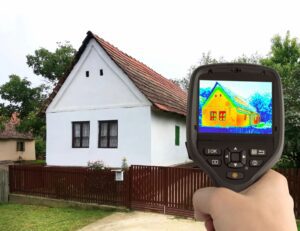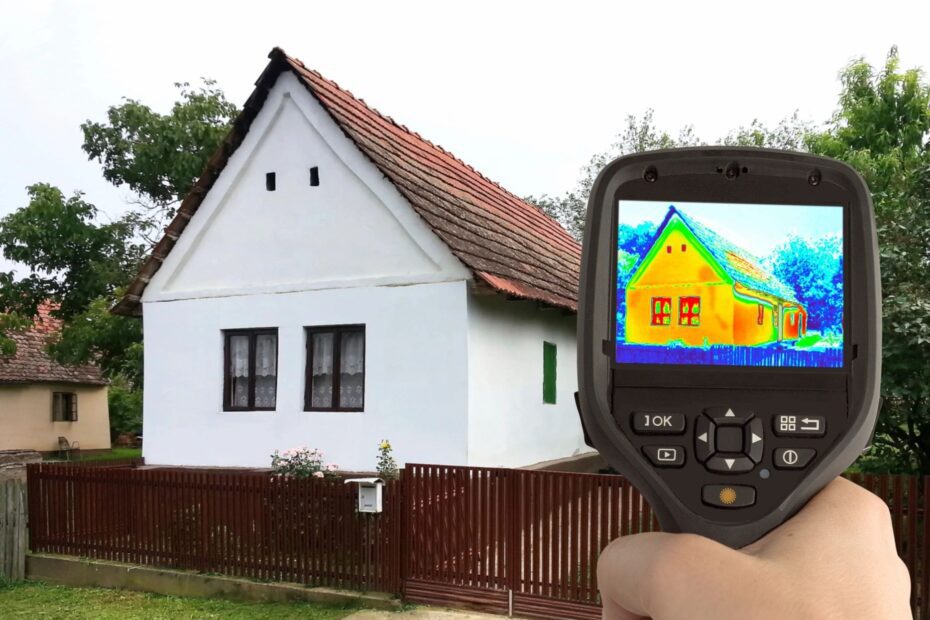What is home insulation and why is it important?
Home insulation is a key component in creating a comfortable and energy-efficient living environment. It involves adding a layer of material to the walls, floors, and ceilings of a home to reduce heat transfer and maintain consistent temperatures. Proper insulation helps to keep warm air inside during the winter and cool air inside during the summer, resulting in lower energy bills and a reduced carbon footprint. Additionally, insulation can help to minimize outside noise, improve indoor air quality, and increase the overall value and resale potential of a home. Investing in quality home insulation is a wise decision that pays off in both the short and long term.

The benefits of proper home insulation
Proper home insulation offers a multitude of benefits that make it a worthwhile investment. Not only does it increase energy efficiency by reducing heat loss in the winter and heat gain in the summer, but it also helps to improve indoor air quality by preventing drafts and minimizing the infiltration of pollutants. Additionally, proper insulation can enhance the comfort of your home by maintaining a consistent temperature throughout and reducing noise transmission from outside. Moreover, it can contribute to significant cost savings on energy bills in the long run. By insulating your home effectively, you can create a more comfortable, healthier, and more energy-efficient living environment for you and your family.
Energy efficiency and cost savings
Investing in proper home insulation not only improves energy efficiency but also leads to significant cost savings in the long run. High-quality insulation helps to create a thermal barrier, preventing heat transfer between the interior and exterior of your home. This means that during the winter, your home will retain heat more effectively, reducing the need for excessive heating and lowering your energy bills. Similarly, in the summer, insulation keeps your home cool by preventing hot air from infiltrating your living space, reducing the need for air conditioning and further decreasing your energy consumption. By properly insulating your home, you can create a more comfortable living environment while also saving money on your energy expenses.
Comfort and temperature regulation
Comfort and temperature regulation are two key benefits of proper home insulation. When your home is well insulated, it acts as a barrier against extreme temperatures, keeping the interior comfortable throughout the year. Insulation helps to prevent heat loss during the winter and heat gain during the summer, reducing the need for excessive heating or cooling. This not only improves your overall comfort but also helps to lower your energy bills. Additionally, insulation can also reduce noise transmission, creating a quieter and more peaceful living environment. By investing in proper home insulation, you can enjoy a more comfortable and regulated indoor climate while also saving money and reducing your environmental impact.
Noise reduction and soundproofing
Proper home insulation goes beyond just keeping your house warm in the winter and cool in the summer. One often overlooked benefit is its ability to reduce noise and provide soundproofing. By effectively sealing off your home from the outside world, insulation can create a peaceful and quiet environment inside. Whether you live in a bustling city or a noisy neighborhood, the right insulation can significantly minimize unwanted sounds, allowing you to enjoy a more tranquil living space. So, investing in proper home insulation not only improves energy efficiency but also enhances your overall quality of life by providing a much-needed escape from the noise pollution outside.
Improved indoor air quality
Proper home insulation not only helps to regulate temperature and reduce energy costs, but it also plays a significant role in improving indoor air quality. Many homeowners may not realize that inadequate insulation can lead to air leaks and moisture buildup, which can result in the growth of mold and mildew. By investing in proper insulation, you can create a barrier that prevents outdoor pollutants, allergens, and moisture from seeping into your home. This can greatly reduce the risk of respiratory issues and allergies, creating a healthier living environment for you and your family.
Increased property value
Proper home insulation not only improves energy efficiency and reduces utility costs, but it can also significantly increase the value of your property. When potential buyers or appraisers assess a home, they take into account its energy efficiency and sustainability. A well-insulated home demonstrates that it has been well-maintained and cared for, giving it a competitive edge in the real estate market. Additionally, proper insulation helps regulate indoor temperature, reducing the strain on heating and cooling systems and extending their lifespan. Investing in quality insulation not only brings immediate savings on energy bills but also offers long-term benefits by enhancing the value and marketability of your home.
Different types of home insulation materials
Choosing the right type of insulation for your home is key to creating a comfortable and energy-efficient living space. There are various types of home insulation materials available, each with its own unique benefits. Fiberglass insulation is one of the most common options and offers excellent thermal performance and soundproofing capabilities. Another popular choice is cellulose insulation, which is made from recycled paper and provides superior fire resistance. Spray foam insulation is known for its exceptional air sealing properties and can help prevent drafts and moisture infiltration. Finally, there is also radiant barrier insulation, which reflects heat away from your home, keeping it cooler in the summer and reducing your cooling costs. By understanding the different types of home insulation materials, you can make an informed decision and enjoy the many benefits that come with a properly insulated home.
How to determine if your home needs insulation
Determining if your home needs insulation is a critical step in creating a comfortable and energy-efficient living space. Many homeowners may not realize that inadequate insulation can lead to significant heat loss during the winter and heat gain during the summer. This not only results in discomfort but also increases energy bills. A simple way to check if your home needs insulation is by feeling the walls and ceilings for any temperature variations. Additionally, if your energy bills are consistently high, it may be a sign that your home lacks proper insulation. Investing in insulation not only helps maintain a consistent indoor temperature but also reduces carbon emissions and contributes to a greener environment.
Conclusion: The value and long-term benefits of investing in proper home insulation
Investing in proper home insulation is a decision that not only enhances the comfort of your living space but also provides numerous long-term benefits. Beyond the immediate reduction in energy costs, insulation helps to maintain a consistent temperature throughout your home, ensuring a cozy environment all year round. Additionally, well-insulated homes are less prone to moisture buildup and mold growth, which can have detrimental effects on both your health and the structural integrity of your property. Furthermore, proper insulation acts as a sound barrier, reducing noise pollution and creating a peaceful oasis within your home. By making the investment in quality insulation, you are not only improving your daily living experience but also increasing the value and marketability of your property in the long run.
